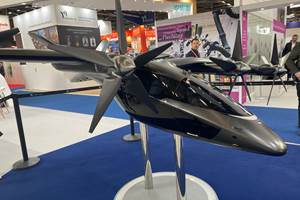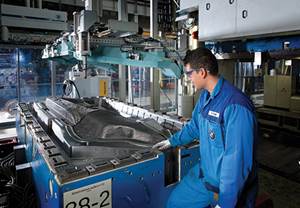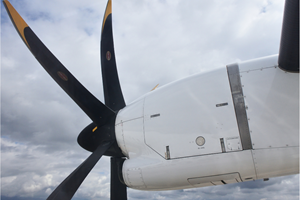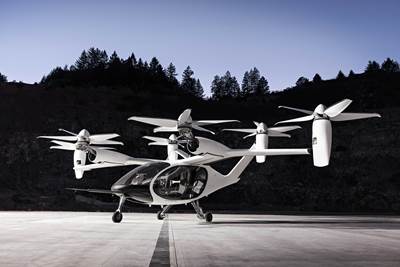Joby Aviation accelerates eVTOL aircraft certification
The company has begun generating revenue for the Agility Prime program, and has agreed to FAA G1 certification basis for its aircraft.
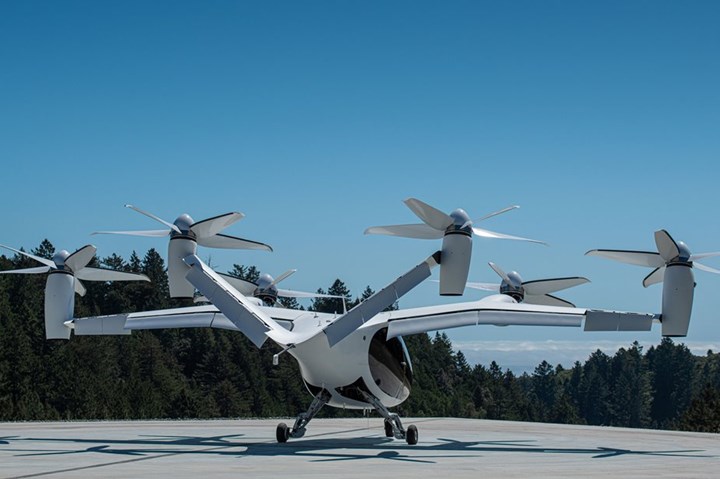
Photo Credit: Joby Aviation
Joby Aviation (Santa Cruz, Calif., U.S.) announced on Feb. 9 that it has begun generating revenue as part of achieving another major milestone in the U.S. Air Force’s (USAF) Agility Prime program. The company also announced that it has agreed to a G1 certification basis for its all-electric vertical takeoff and landing (eVTOL) aircraft with the Federal Aviation Administration (FAA, Washington, D.C., U.S.). This agreement lays out the specific requirements that need to be met by Joby’s aircraft for it to be certified for commercial operations.
Agility Prime is a program that seeks to accelerate the development of a commercial market for advanced air mobility (AAM) and encourage American innovation. Joby’s participation in the program will reportedly provide the U.S. Government with valuable data and insight into the operation and performance of eVTOL aircraft. It also provides Joby with access to key research facilities and equipment, as well as an opportunity to prove out the maturity and reliability of its aircraft years in advance of entering commercial service.
“The Agility Prime and Joby partnership is now on an accelerated path to identify the opportunities for early adoption of these aircraft for logistics that provide flexibility to operators and savings to taxpayers. We are also one step closer to the commercialization of a clean, quiet, modern, transportation system,” says Nathan P. Diller, AFWERX Agility Prime director.
Joby’s eVTOL aircraft will be certified in line with the FAA’s existing Part 23 requirements for Normal Category Airplanes.
The news of Joby generating revenue from the program comes on the heels of the company being awarded the USAF’s airworthiness approval for an eVTOL vehicle at the end of 2020.
JoeBen Bevirt, Founder and CEO of Joby Aviation, said: “The Agility Prime program represents an invaluable opportunity to understand and accelerate the positive impact of clean, electric aircraft in the U.S. and beyond,” state JoeBen Bevirt, founder and CEO of Joby Aviation. “With ten years of engineering and more than 1,000 test flights behind us, we’re excited to now be playing a key role in demonstrating the potential of this new sector while giving the U.S. Government a front row seat.”
Joby also confirmed that it agreed to a G1 certification basis for its aircraft with the FAA in 2020. A G1 outlines the criteria that need to be met in order for an aircraft to be certified for civil commercial operations, and reaching the milestone marks a key step on the way towards certifying any new aircraft in the U.S.
According to the company, its eVTOL aircraft will be certified in line with the FAA’s existing Part 23 requirements for Normal Category Airplanes, with special conditions introduced to address requirements specific to Joby’s unique aircraft. These special conditions, defined in the G1 document, are expected to be published in the U.S. Federal Register in the coming months.
Bevirt adds: “While we still have several years of aircraft testing ahead of us, we now have a clearly defined, and achievable, path to certifying our aircraft and introducing customer flights. Reaching this milestone is a watershed moment for our new industry and I’m grateful for the many years of hard work the FAA and our in-house aviation safety experts have put into getting us to this point.”
Related Content
Composites end markets: Aerospace (2023)
With COVID in the past and passengers flying again, commercial aircraft production is ramping up. The aerocomposites supply chain is busy developing new M&P for an approaching next-generation aircraft program.
Read MoreJEC World 2022, Part 3: Emphasizing emerging markets, thermoplastics and carbon fiber
CW editor-in-chief Jeff Sloan identifies companies exhibiting at JEC World 2022 that are advancing both materials and technologies for the growing AAM, hydrogen, automotive and sustainability markets.
Read MoreMaterials & Processes: Fabrication methods
There are numerous methods for fabricating composite components. Selection of a method for a particular part, therefore, will depend on the materials, the part design and end-use or application. Here's a guide to selection.
Read MoreWe're going to need a lot of propeller blades
As advanced air mobility expands and annual shipsets get into the thousands, the demand for composite propeller blades is expected to skyrocket. What are the implications for the composites supply chain?
Read MoreRead Next
Toray, Joby Aviation finalize long-term carbon fiber supply agreement
Toray carbon fiber materials will be used throughout the eVTOL aircraft structure, propulsion systems and interior components, with hopes to bring it to commercial operation as early as 2023.
Read MoreCW’s 2024 Top Shops survey offers new approach to benchmarking
Respondents that complete the survey by April 30, 2024, have the chance to be recognized as an honoree.
Read MoreComposites end markets: Energy (2024)
Composites are used widely in oil/gas, wind and other renewable energy applications. Despite market challenges, growth potential and innovation for composites continue.
Read More

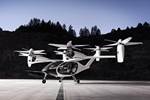












.jpg;maxWidth=300;quality=90)




